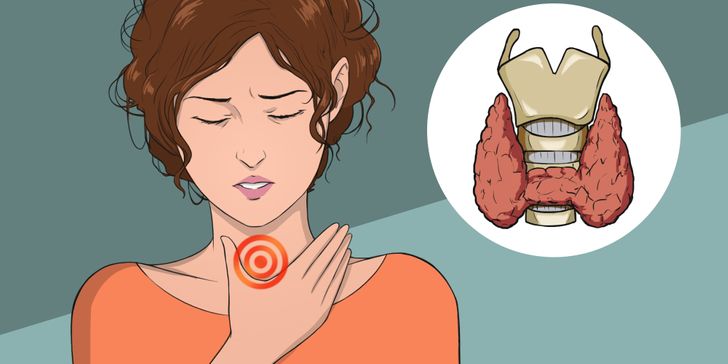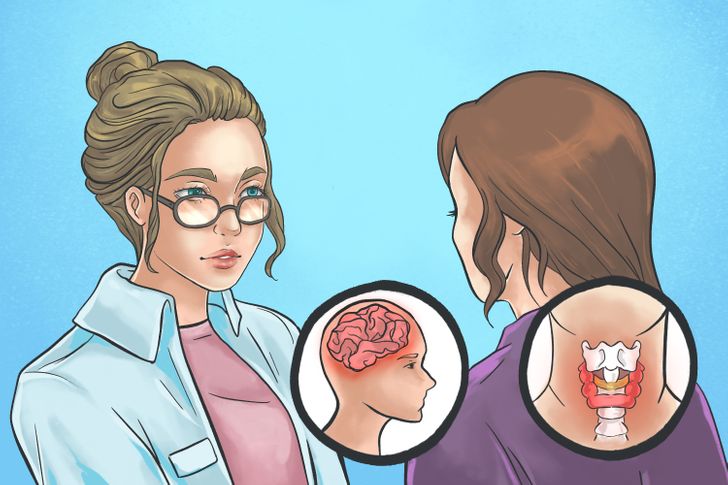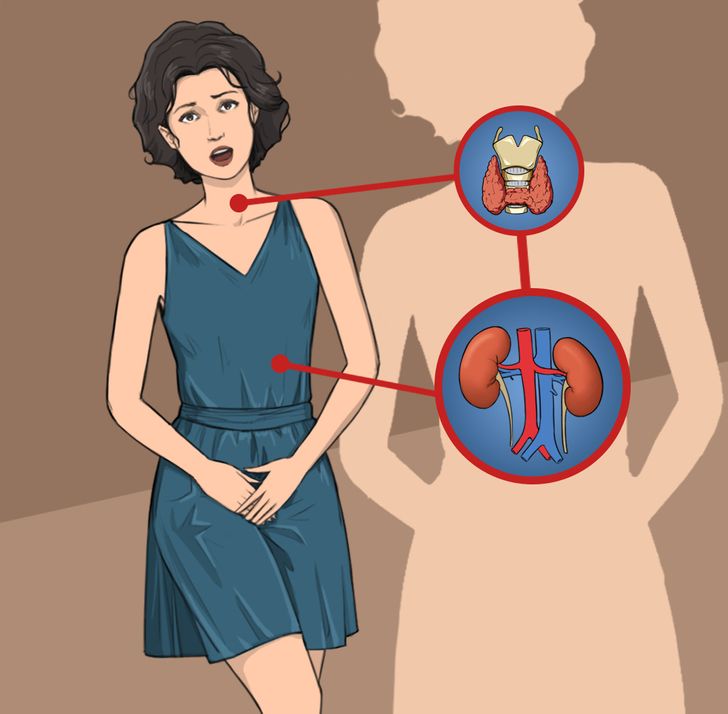I Refuse to Give Up the Passenger Seat for My MIL—She Should Learn Her Place


The thyroid is a small gland that sits around your windpipe under your larynx (voice box.) The hormones that it secretes control the body’s metabolism. But like all things, this “mother of all glands” is susceptible to malfunctioning and when this happens, it acts in different ways depending on whether it’s producing the hormone in excess (hyperthyroidism) or not producing enough of it (hypothyroidism.)
Bright Side has put together a list of symptoms of both thyroid conditions so that you can become aware of a malfunctioning thyroid. If you think something may be wrong, be sure to visit a doctor as soon as you can.

Hypothyroidism is a condition in which the thyroid gland does not produce enough thyroid hormone. A deficiency of iodine is one of the most common causes of hypothyroidism. Hypothyroidism is more common in women than in men, with women over the age of 60 being most susceptible.
Now let’s take a look at its symptoms.

The thyroid gland and the larynx (voice box) are located very close to each other. So any dysfunction of the thyroid gland can affect the larynx and cause issues with your voice.

Hypothyroidism leads to the calcification of the skin. This causes it to appear thick, dry, and scaly in texture. It can also result in the thinning of your eyebrows, which is rather insidious yet often appears among the first symptoms.
Fluid retention, a common symptom of hypothyroidism, can cause pain in the muscles and joints. It most often manifests around the ankles and feet and worsens with physical activity.
Although the reason is not completely known, research has clearly identified links between thyroid malfunction and the loss of hearing.
Hyperthyroidism is a condition caused by excessive production of the thyroid hormone in the body. About 60% to 80% of hyperthyroidism cases in the United States are caused by Graves’ disease. Other causes include multinodular goiter, toxic adenoma, inflammation of the thyroid, and an excessive amount of iodine in the diet. Its occurrence is around 2 to 10 times more widespread in women.
So what are the symptoms of hyperthyroidism? Let’s have a look.
An increased appetite can be a sign of hyperthyroidism as the excessive release of the thyroid hormone in your body may make you feel hungry all the time. The only upside to this is that the excess food intake doesn’t necessarily make you gain weight since the increased metabolism of the body offsets it.

A faster metabolism means an increased blood flow. This makes your kidneys filter more, so more urine is produced.
Since hyperthyroidism causes excessive urination, your body needs to replenish its water levels. This makes you crave more water.
Everyone would experience mild tremors if their hands and forearms were to be held up in the same position for too long. Since hyperthyroidism speeds up almost all metabolic functions and puts the body in fast-forward mode, the length of time after which the hands would normally start trembling gets reduced. This causes noticeable tremors in the hands and the forearms.
Lifestyle tips for hypothyroidism:
Go to bed early and make a sleeping schedule. Feeling lethargic and low in energy are common symptoms of hypothyroidism. So give your body proper sleep to replenish this energy.
Lifestyle tips for hyperthyroidism:
Bright Side wants everyone to stay healthy. But if you suffer from thyroid malfunction or know anyone who does, share the information you’ve learned with your loved ones.











